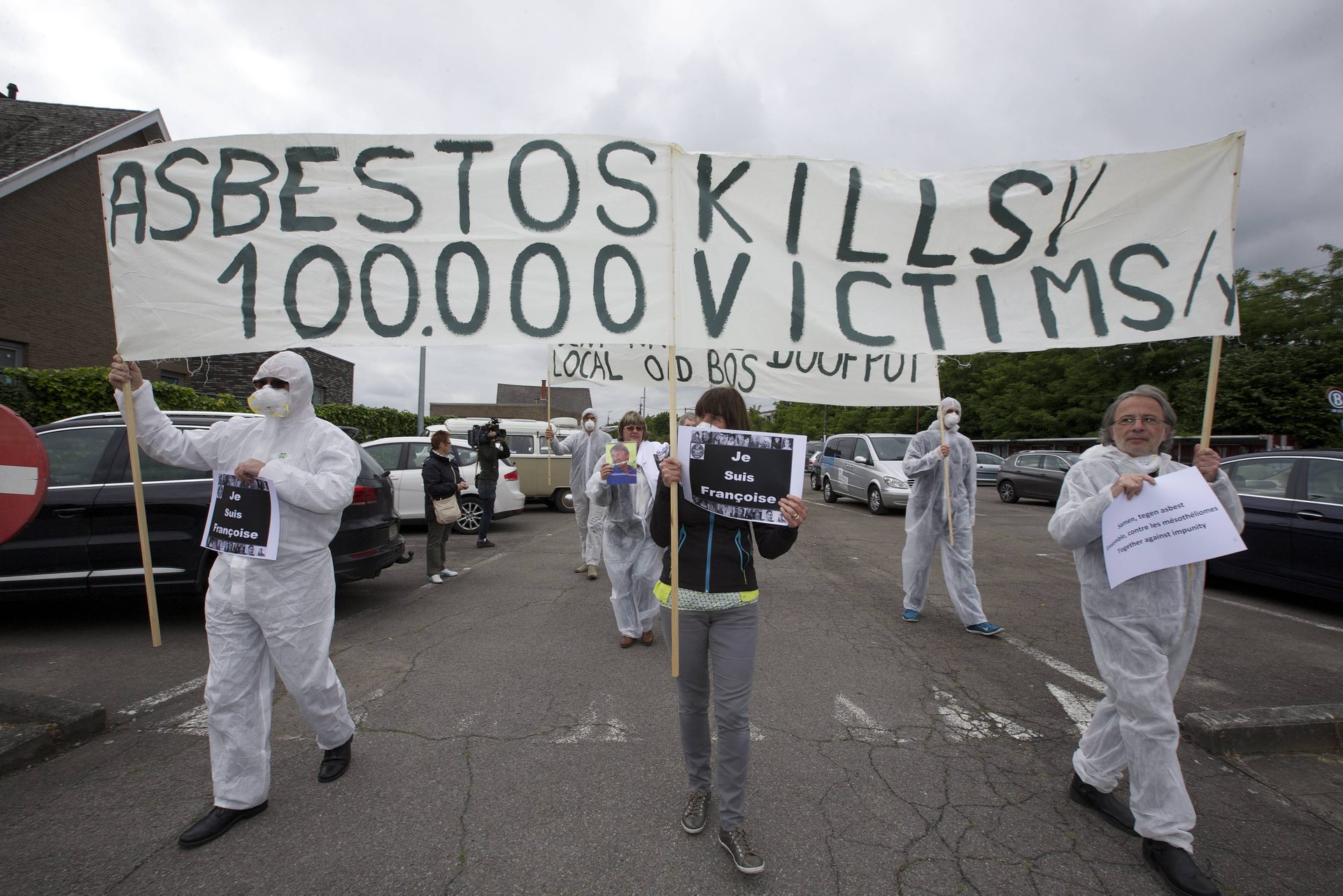Flanders has set its sights on holding Eternit, the former producer of asbestos products, to account, stating it should pay more to help free the region of the product which can pose major health risks.
Flemish environment minister Zuhal Demir sent a notice of default to Eternit and its directors. The Belgian company made its fame and fortune last century by producing asbestos cement. It was hailed as a magic material because it was strong, fire-resistant and cheap, but it soon surfaced that released asbestos fibres that were inhaled could cause lung diseases and cancer.
Eternit (now Etex) knew about this risk for decades but minimised the dangers of its products, lobbied against restrictive legislation and swept any damaging information under the rug. Especially people living near or working in the Eternit factory in Kapelle-op-den-Bos in central Flanders died as a result of asbestos exposure and Eternit's minimising of the dangers.
"Every year, more than 300 families in our country say goodbye to a loved one who dies as a direct result of asbestos particles," Demir noted. "That's someone almost every day. It is something to dwell on, but even more, it is something to act upon."
Time to take responsibility
Producing, using or recycling asbestos has been prohibited since 1998, but it wasn't until 2014 that any prospect of the company paying for its role in the asbestos pollution was in sight. Ten years ago, former environment minister Joke Schauvliege (CD&V) and the Public Waste Agency of Flanders (OVAM) struck a deal with the company in which it agreed to pay €4.8 million for the removal of asbestos waste between 2014 and 2030.
But Demir sees this as insufficient. "There are too many blatant bribery schemes for asbestos producers and I cannot accept that," she noted, referring to the financial support given to victims, described by affected families as hush money, and the "successful" lobbying by the company. "I cannot explain to the dying patients that I would do nothing."

People protesting near the entrance of the plant of asbestos manufacturer Eternit in Kapelle-op-den-Bos. Credit: Belga / Nicolas Maeterlinck
Some 2.3 million tonnes of asbestos were still present in Flanders in 2019 and according to an OVAM estimate, Eternit is responsible for 65% of the asbestos cement produced and used in the region. Demir argued this means €4.8 million is far too little to make Flanders asbestos-safe. "The costs far exceed the ransom," she said.
Since 2018, the Flemish government itself has already spent €169 million on removing asbestos, but Demir noted it is "fundamentally unfair to pass that on to the taxpayer". She therefore wants to go a step beyond the existing deal.
Demir found a legal avenue to challenge this, in part thanks to the Brussels court that ruled last year that the company deliberately continued its asbestos production knowing that some of its employees, their families and those living near the plants could be affected. In addition, the deal is "unclear in some respects and limited in scope, which means that a legal liability of Eternit does still exist".
All polluters have now been demanded to pay a substantial amount per year until 2040 to finance making Flanders asbestos-safe. The amount demanded is not disclosed. In a statement, Demir said the company has been given 30 days "to make it known that it is willing to take up its responsibility".
Eternit responded that it was "surprised" by the move, but added that it is "happy to engage with the minister to better understand her position", adding that settlements have been reached in the past. The US company Johns Manville, which is linked to former asbestos producer JM Balmat, in Mol, also received a registered letter.

